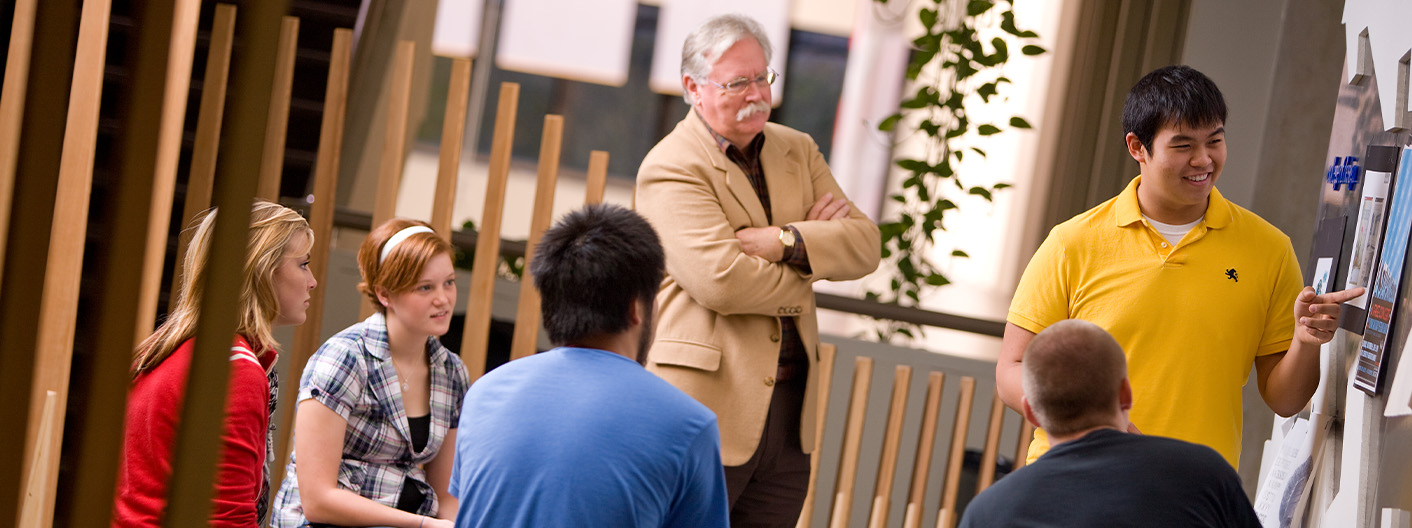Faculty
The programs within the University Honors Program perform several functions. They help attract and retain the university’s best and brightest students and offer an exceptional undergraduate education through classes and seminars. Through the honors program, students have opportunities to have close interaction with faculty and professional staff on campus, research opportunities, and social and residence-based activities.
Many faculty consider teaching honors students to be a highlight of their work. While most rewards for teaching honors students are intrinsic, the energy and enthusiasm that result – on the part of both students and faculty – can enhance and rejuvenate faculty work both in and outside the classroom.
